Tailor-made training
Discover some of our tailor-made training courses. They are presented in detail but are always adapted to your needs, your context and take into account the language spoken by your team. Whether it is TV or radio reporting, newspaper presentation, debate moderation or digital content, we analyse the problem together within your editorial team before offering you one of these reworked training courses based on the duration, the number of people to be trained and the logistical resources available…
All France 24 teams, reporters, presenters, editors-in-chief, correspondents are ready to share their expertise in all areas of journalism

Press review
Acknowledging a wide variety of opinions, quoting work by newspaper and online journalists, bringing information or a photo to light are the aims of a press review. Learn how to deliver an informative and original press review by including a variety of media outlets and different points of views with specialists at France 24.
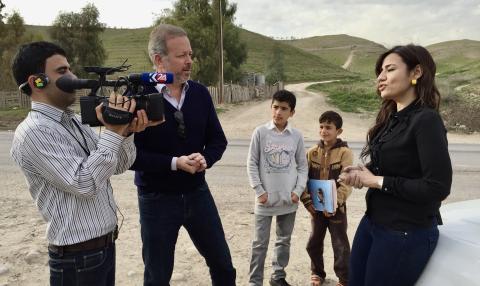
News reports
France 24 reporters are on the ground for every major international event. Learn from their experience, discover reporting techniques, get their tips about saving time while filming, test your professional reflexes in your editorial team and while in the field.
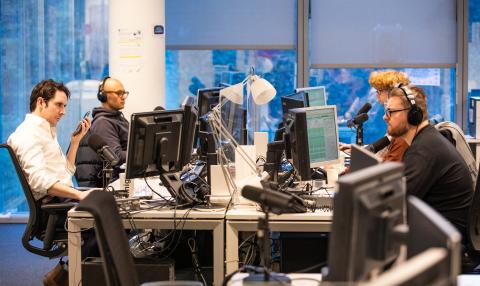
Organising a special edition
Whether it’s a plane crash, a deadly attack, or an election, a number of events - foreseen or not - warrant changing a segment and organising a special edition in a studio or in the field. Senior producers and news editors at France 24 will teach you how to anticipate events, manage logistics and give a full account of events.
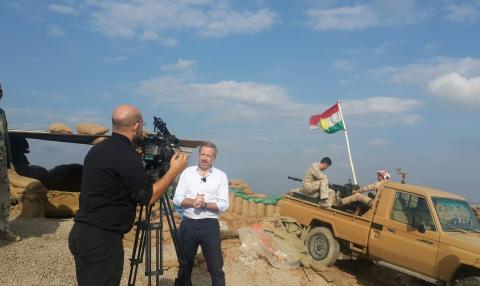
Piece-to-camera
To give credibility to their work, broadcasters often report in the field - on the frontline, in the middle of a protest or at the site of a disaster. France 24 will share with you several rules about the content and form of special reports that must be respected to ensure that on-the-ground reports are appropriate.
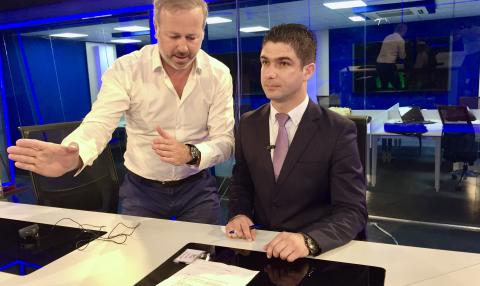
Presenting the news
How to act in front of the camera, what to wear, what to do with your hands, how to appear relaxed yet credible, and how to cope with breaking-news stories? The Académie can teach you to master your non-verbal communication and successfully appear on live TV.
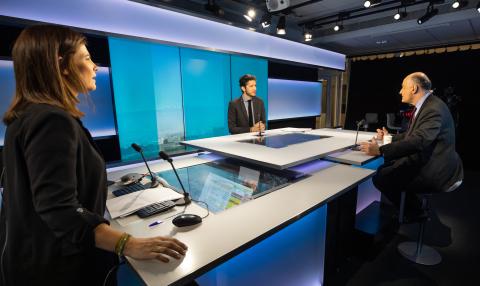
Chair debates
Every news channel stages daily debates in order to analyse the day’s top stories. How should the guests be grouped? How does the presenter make the debate coherent? How do they stimulate the discussion? Debate specialists from France 24 will share their techniques on galvanising a debate programme.
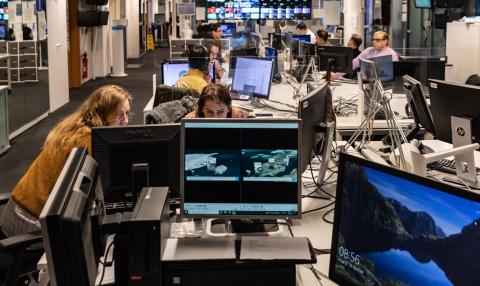
Producing news bulletins
“Early shift”, “late shift”, “midday conference”: television channels build their schedules around news segments. Discover how to construct a 2 or 3-hour news bulletin by including news programmes, analysis, debates, reports and how to manage editorial teams with the news editors at France 24. .
Trainers from RFI and MCD branches, practicing radio on a daily basis with very high standards
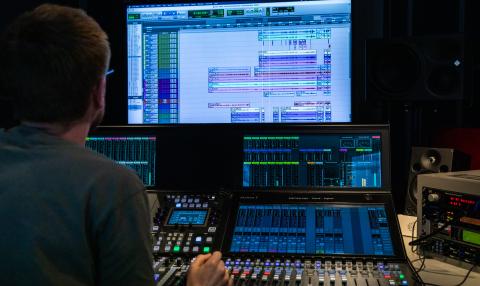
Editing and mixing for radio
With the digitalisation of radio - especially in small radio stations - it is essential that journalists and producers are able to produce a programme. Discover how to produce a professional radio show with technicians from RFI.
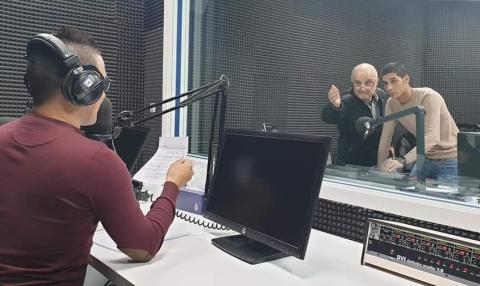
Voice training
Substance is essential, but in a radio setting, form is of equal importance. Even the most vital information might not catch the attention of listeners if it is not well delivered. This workshop will enable participants to understand the importance of their voices and how to use them properly. Simple exercises will focus on dictation, speed, breathing, and concentration to improve vocal techniques and efficiency.
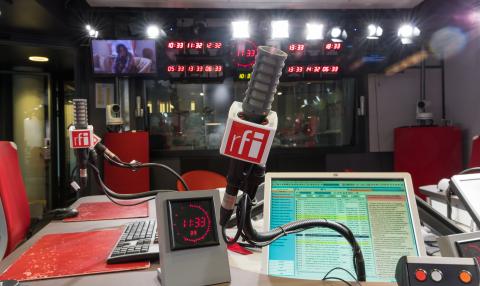
Studio operation
This workshop allows technicians and sound operators to improve their operation of studios for broadcasting and radio production. The basics of analogue and digital sound will be dealt with theoretically. Technicians will practise by using studio equipment largely through practical work.
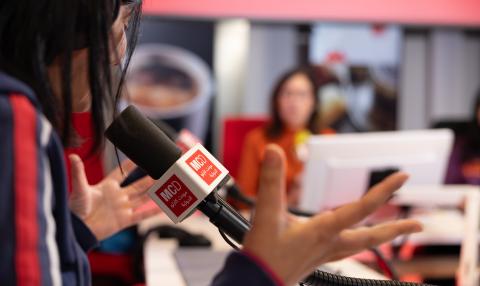
Radio presenting
Presenters must always make their listeners feel like they are with them as they go about their daily routine. Radio presenters must be dynamic, upbeat, imaginative, reactive and extremely knowledgeable about their subject. Discover how to achieve this with the presenters at RFI, who will help you refine your style and expand your skills.
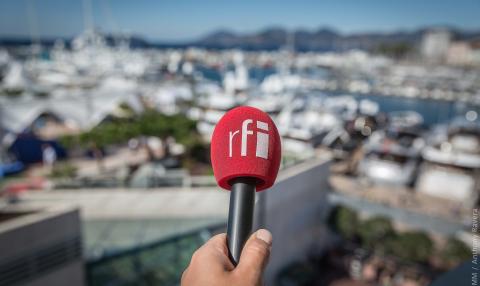
Radio reporting
Radio news reports allow the listener to find themselves at the heart of the action, to hear noises, to get a grasp of surroundings. To achieve this, a reporter must paint a picture in the listener’s mind through commentary, interviews and describing the atmosphere at the scene. Discover the techniques used by RFI journalists, who travel across the world and broadcast daily reports on radio stations worldwide.
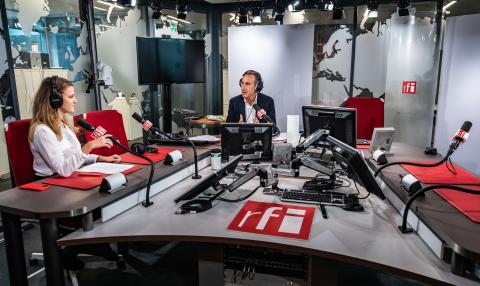
Presenting interactive programmes
Allowing your listeners to express themselves on air is one of the best ways to build an audience. But it’s also one of the riskiest elements of radio because things can get a bit out of hand and also in terms of political and legal sanctions. Learn the golden rules for presenting programmes on your radio station with journalists from RFI.
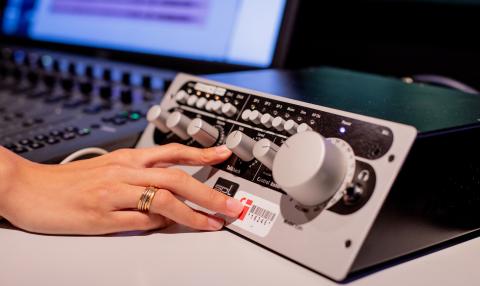
Radio station jingles
Creating a jingle will strengthen the image of your radio station. A catchy tune, a recognisable voice, a punchy slogan, a lively sign-on… Every radio station needs an effective sound signature to survive and stand out from the growing competition.
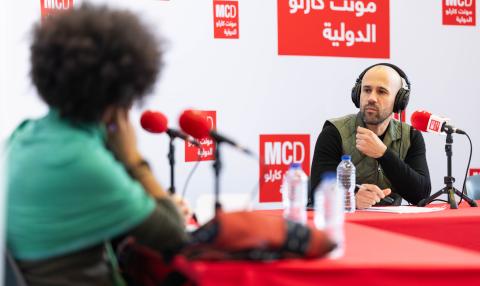
Interview technique
Led by a journalist from RFI or MCD (depending on the language), this intensive training gives participants the opportunity to thoroughly practise the ever-perilous live interview. After some theoretical input and listening to a few remarkable interviews, participants must prepare and carry out numerous interviews in live conditions, which are then followed by critical listening sessions in group. Afterwards, the trainer provides corrections and personalised advice.
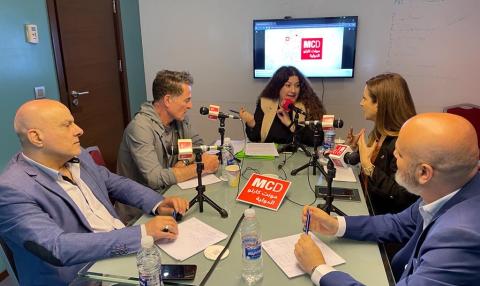
Covering elections
Covering an election is an important event for a radio station and is never without risk due to enormous pressure on the media. Learn from the expertise of RFI journalists - their advice will enable you to anticipate and prepare for daily meetings and special editions and offer listeners balanced and extensive election coverage.
In a sector in constant evolution, share the experience of specialists from France 24, RFI and MCD in the field of internet and social networks

SEO - Search Engine Optimization
Finding the right word has always been an important goal for journalists. This is even more true today with the emergence of SEO (Search Engine Optimization). Each word must be chosen carefully so that your written content appears in the first search results carried out by users in the immense ocean of online information.
This course provides participants with the knowledge and skills necessary to implement effective SEO strategies, particularly for Google.

Launching a participative programme
FRANCE 24 is the first international news channel to have launched a participative programme using amateur images only, developing an original programme with 'The Observers' site as inspiration. The Académie's specialists can help every step of the way – from the programme's initial design to the test or pilot episode.
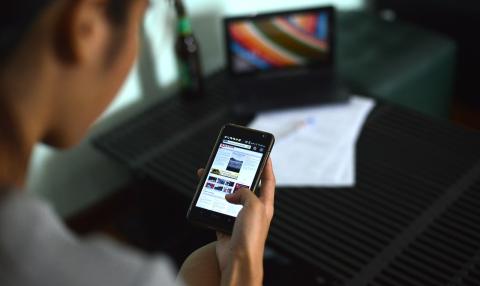
Storytelling on the internet
Internet has opened the door to new ways of consuming news, combined with new production tools. These tools, often free, give the opportunity to tell the news combining different media and varying time frames.

Develop your online audience by using referencing and social networks
Understanding referencing and how to optimally use social networks is vital to reach one's audience. Make sure you have a good position in search engines such as Google, thanks to URL optimization and a range of writing techniques. Learn how to develop your presence on Facebook, Twitter, and Google plus in order to increase your audience and get to know your audience better.

Find reliable and inexpensive information on the internet
Internet is a genuine information mine for journalists. Witnesses, experts, images, and exclusive news are within reach of journalists who know how to navigate the web. Learn how to master this henceforth essential environment for every journalist.

Amateur content and social networks
What can we expect from internet users? How can we encourage them to participate on the air? How to edit their content so that it can be broadcast on professional media? The Academy's experts help you find the best information while avoiding the pitfalls of misinformation
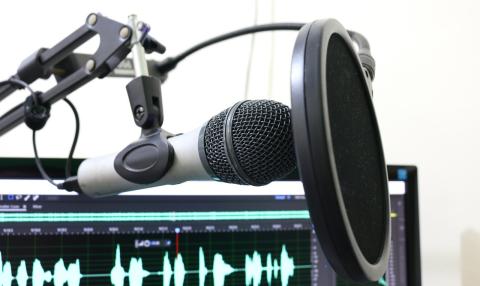
Podcast and videocast
These short audio or video broadcasts constitute a fun part of your website. Take advantage of a multitude of online tools available for free or at low cost. Learn to master these to create new formats and reach new audiences.

The social media survey
France 24 is the first international news channel to have dedicated a team to verifying amateur content from the internet. These photos, videos and testimonials posted online by internet users from all over the world can have real informative value. But how can we draw from this pool while being sure that what we broadcast is correct?
Because journalism is a risky profession, France Médias Monde has set up high-level safety training to offer reporting teams who go into dangerous areas the most appropriate advice.
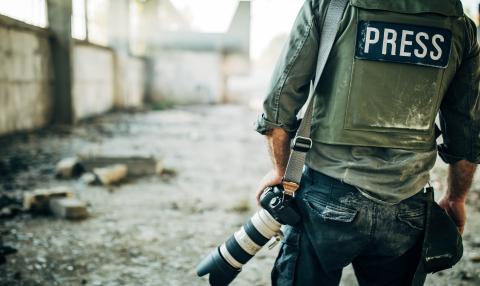
Reporting in dangerous zones
The safety of journalists and technicians doing reports is a major issue for all types of media. It is even more more a matter of concern now, as the geopolitical context has evolved significantly in the last few years. Reporting journalists and technicians are now frequently targeted. The traditional risk of being wounded is increasingly compounded by kidnapping, sexual assault, or major psychological trauma risks.
Aware of its responsibility toward its employees and toward colleagues working in other media in France and in the world, France Médias Monde has launched, via its Académie, a training session about safety in dangerous areas adapted to the specific needs of news professionals.
Subscription: INA https://campus.ina.fr/formation/medias/journaliste-audiovisuel/formation-a-l-exercice-du-reportage-en-zone-dangereuse
The Académie France Médias Monde Content training courses offer very concrete access to knowledge of a situation or a country thanks to the intervention of correspondents and geopolitical experts from France 24, RFI and MCD
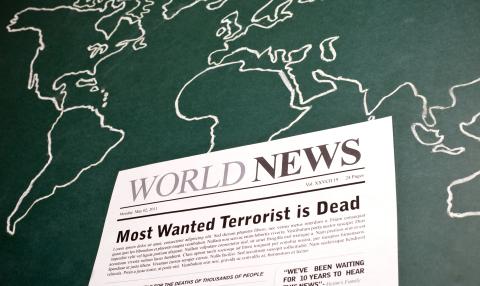
Covering terrorism-related affairs
The increase in terror attacks worldwide poses a challenge for media professionals. Should journalists systematically cover such dramatic events at the risk of becoming a propaganda tool? Should journalists instead dismiss such events and risk being accused of covering up the truth? Compare the different ways of treating information with managers at France Médias Monde.
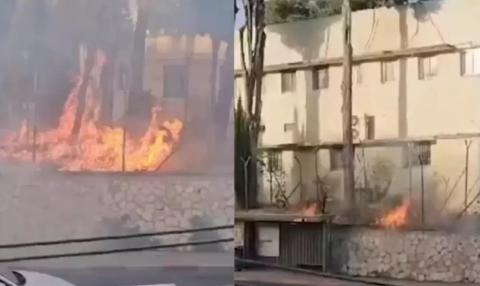
Propaganda and fake news, understanding information wars
The truth is often the first victim in crises. The return of war in Europe and the conflict in the Middle East give us new illustrations of this every day. The surge of propaganda should alert journalists. To guard against its dangerous implications, the press must be on high alert. France 24 journalists specializing in these issues share their knowledge.

Ethics
Ethics should always be one of the pillars of journalism. It’s the trust in the information broadcast by a media outlet, which enables them to retain a loyal audience. Journalists and owners of media outlets should never forget this fact. You’ll tackle these questions with managers at France 24, RFI, and MCD.
